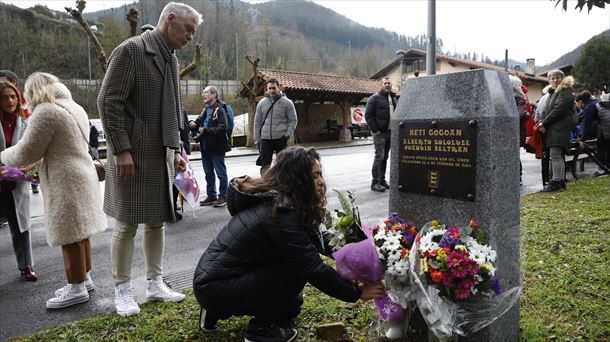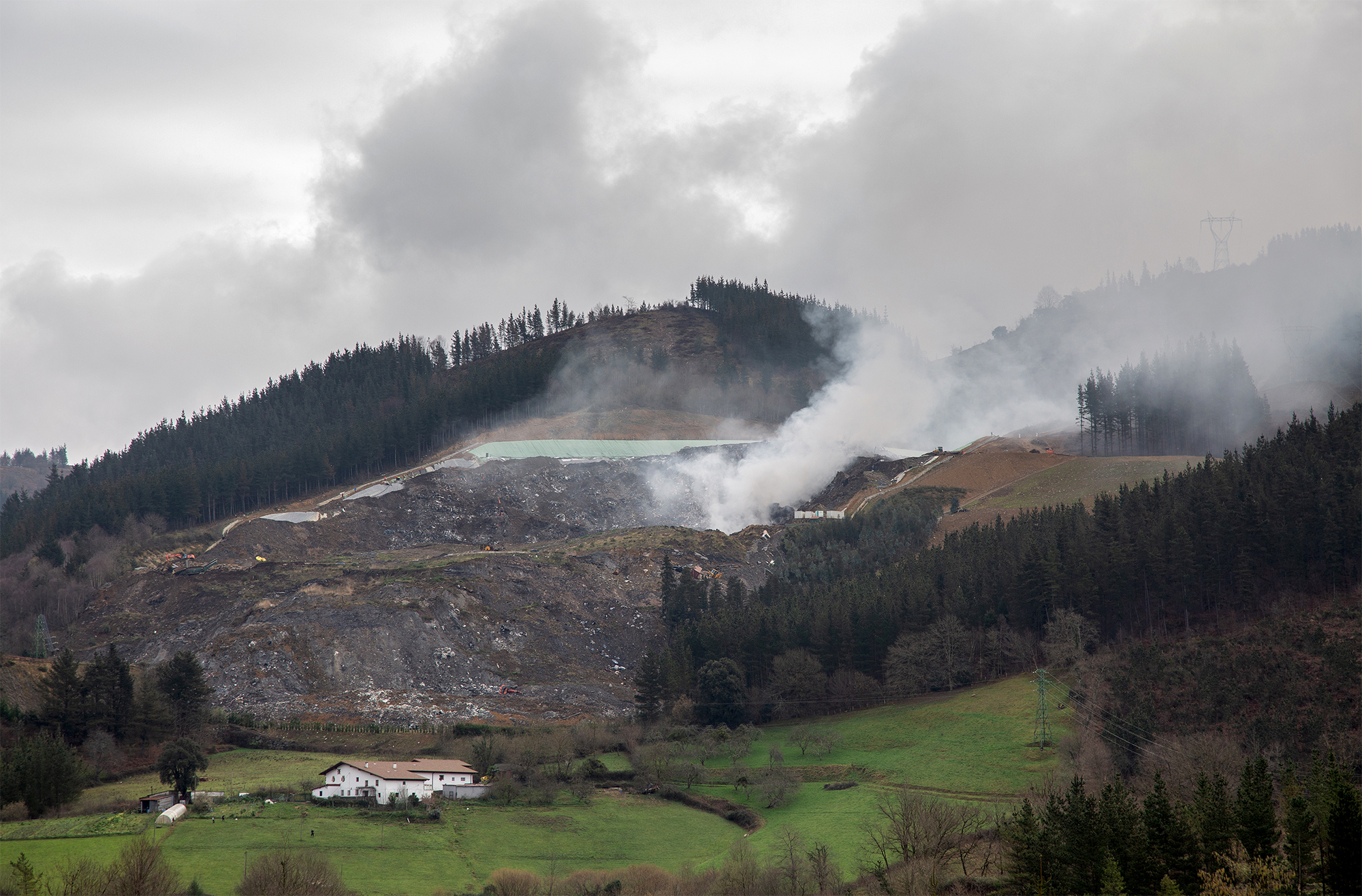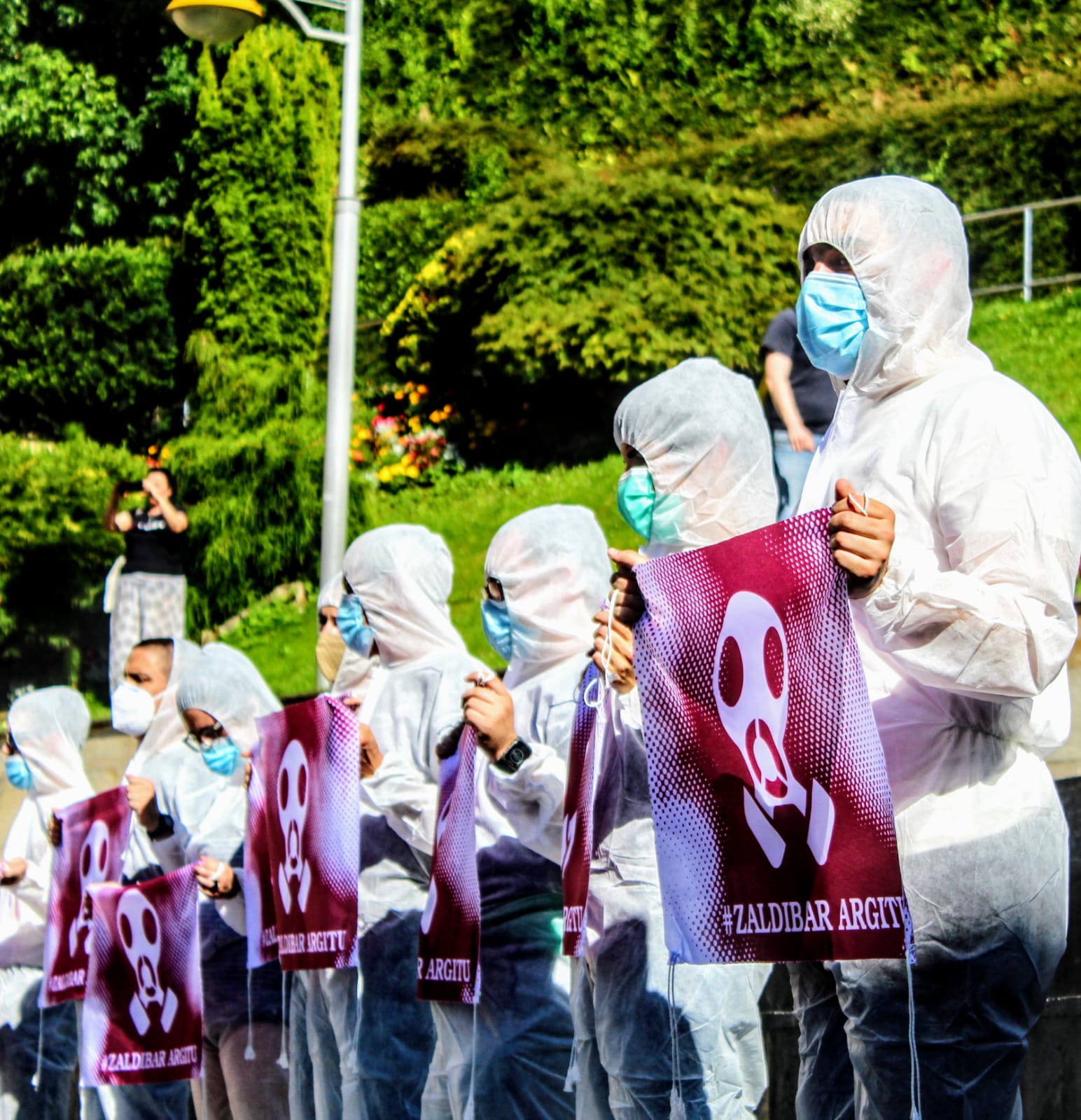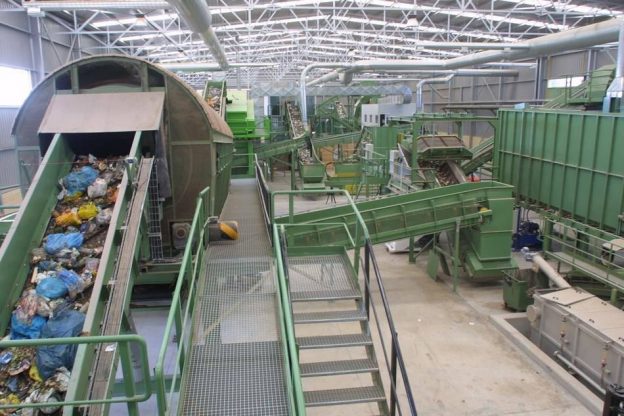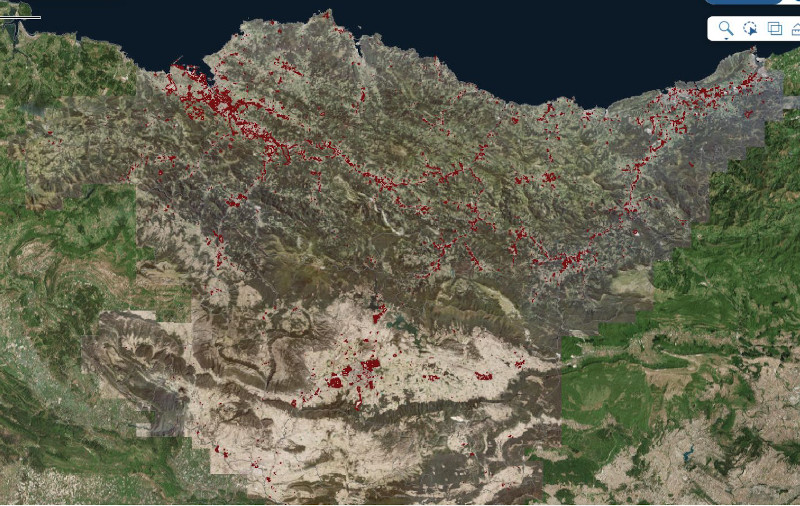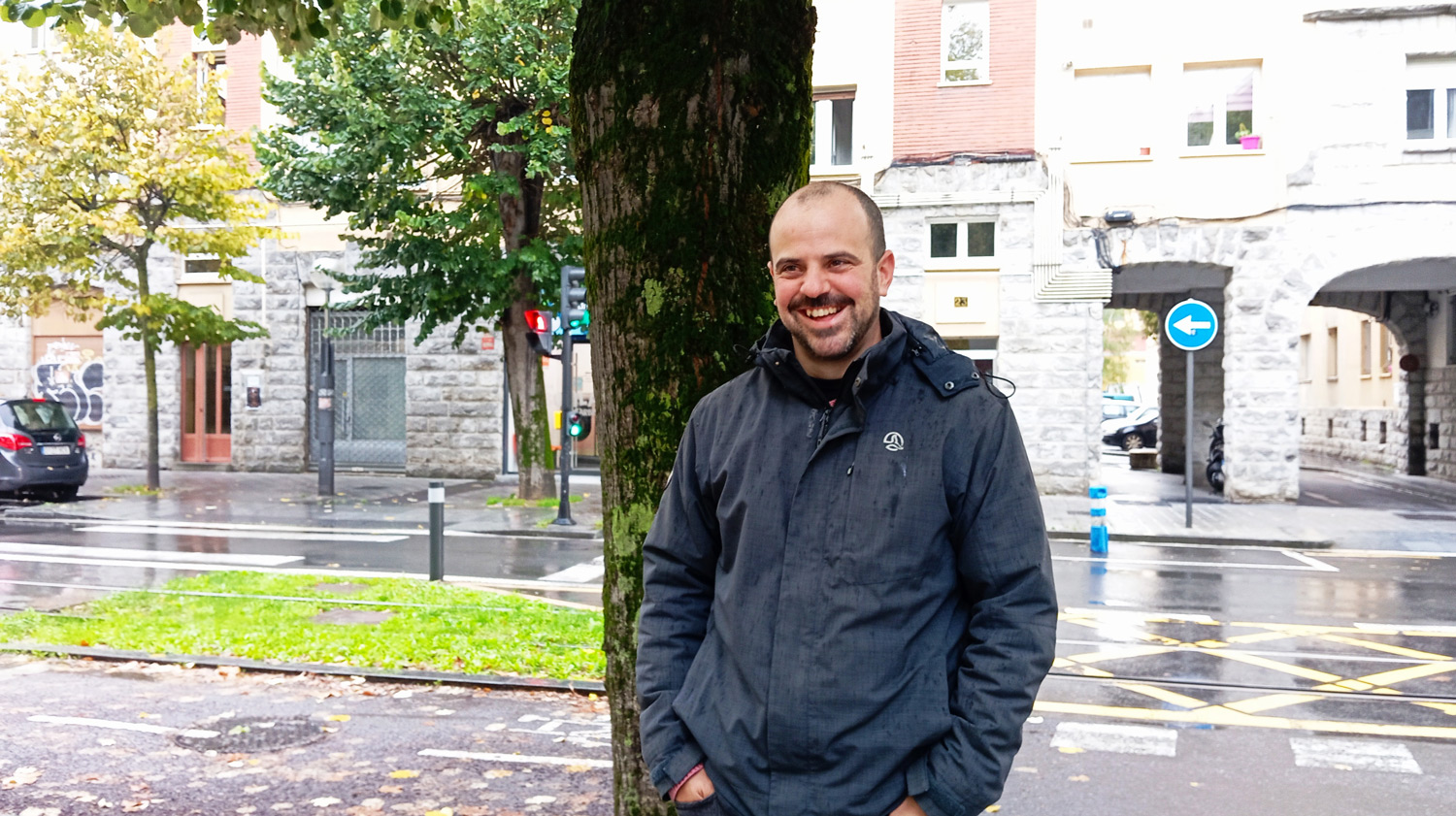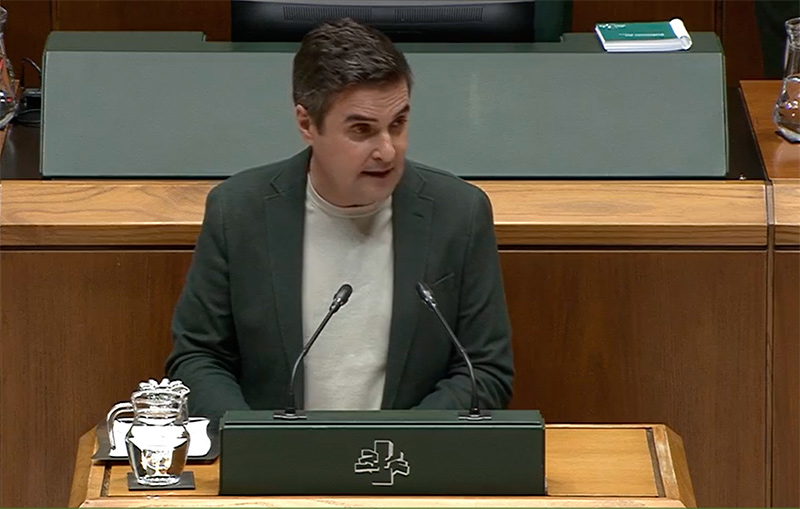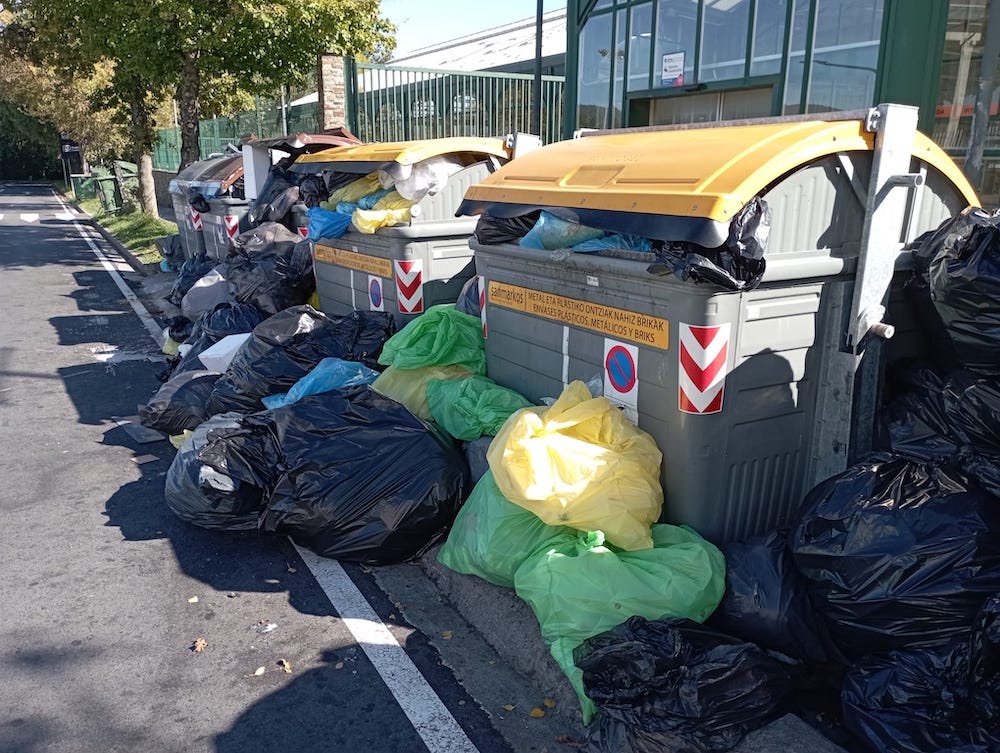"It's ten times cheaper to take a pot, clean it and disinfect it than to make a new one"
- The three concepts are basic in waste management: reducing, reusing and recycling. In Spanish, the letter r is the first of these three words, and hence the name of the 3-R group that Julen Mendiguren forms together with other colleagues in the County of Pamplona. They focus on the sustainable management of waste, combining claims, denunciation and dissemination.

Reduce. We should start out there.
In the waste management hierarchy, this first level is to generate less waste, less pollution, less heating and, therefore, less climate change. It is not cleaner the one that passes the broom the most, but the one that gets the least dirty.
Are we diminishing?
In times of crisis, between 2008 and 2015, there was a certain reduction, but not by the increase in environmental awareness, but by the crisis. Now it seems that waste generation is growing slower, but it continues to grow. Less than one type of waste is produced, but more than another. For example, some waste is not emitted in a solid or liquid form, but it goes into the atmosphere as greenhouse gases. And those are growing, the climate change summits are at their peak.
How much garbage do we generate?
In the region of Pamplona 145,000 tons are generated annually. And those are the waste of houses. Waste from agriculture, livestock and industry accounts for 78% of the total, so only 20% are urban, domestic. In other words, it is much less what citizenship generates at home than what is generated in the products of agriculture and industry.
Seeing that no measures are taken at other levels, is there any risk that the citizen will remain passivity?
This is a problem that always exists. There are citizens who are trying to improve their attitude, but there are also citizens who have been defeated by comfort and laziness. “What do you do if those who should do more, and it’s true, don’t do it?” There are also those who justify the non-separation of waste because, they say, jobs are thus created to separate waste. I say to them: OK, so would you prefer your children to have slogans that would force them to create more teaching jobs that deal with their education?
Reuse, second key verb.
We should rule out single-use products, as they do not exploit the full potential of the products.

Glass bottles, for example, are broken when thrown into the container.
It is terrible, but that is what happens to the companies which, by the decision of the Spanish State, have been responsible for the collection and recycling of glass or plastic. For example, Ecoembes. It is a company financed by large plastic packaging manufacturers. Therefore, its aim is not to reduce consumption, because those who finance it do not want to reduce it, but to produce more. Same thing with glass. All bottles of a given beverage should be standard for reuse. In the past it was made and made, for example, with beers. But why not, for example, with canned jars? It is ten times cheaper to take a pot, clean it and disinfect it than to make a new one. But manufacturers want to produce more.
And three, Recicla. Wouldn't it be better not to get there?
Sometimes there is no more. Organic matter, for example, cannot be reused as such. It has to be recycled, composting or doing what they do here [in the Region of Pamplona] with the fifth container, that is, biometering. It's a false recycling.
Why?
In a circular economy, it would be logical to recover the waste from where it came from. This is not easily done with methane, as in the biometering of the HTN plant in Caparroso. The aim should be to convert it into natural fertilizer, composting. It is true that there are products that cannot be reused due to deterioration. But it's better to reuse as much as possible and have less waste to recycle. Design is key. And programmed deterioration is a huge waste.
Good separation does not guarantee recycling.
Even if it separates well, many plastics, for example, get contaminated. Plastics are selected in Góngora [waste management plant of the Commonwealth of the Region of Pamplona]. But then it's Ecoembes who goes and says: “This serves me, I will take him to recycle, but this does not serve me, I don’t care if you’ve taken the responsibility of separating him.” That goes to the landfill, to the underground. Or they take it to the incinerator. The same applies to paper or cardboard. All that you take is not recyclable. There comes Ecoembes, or Ecopaper, or Ecoglass, and they say it's or it's not.
What can the citizen’s organization achieve?
Management as close as possible is a basic principle. Everything that is recycled as a result of popular organization is good. Furthermore, waste management should be fully decentralised through autonomous facilities. In the community composting of our neighborhood, we do not consume energy, so there is no transportation. Do you know the cost of transporting the fifth container? For the diesel that burns the truck from where it is picked up to Caparroso.
“I am in love with the environment, but in my professional life I have not been able to develop that passion. I'm an industrial engineer, and I've worked as a professor of vocational training, first in Durango, and then, for years, at the Txantrea. Once I retired, I started working on these issues in 2005. I'm at the New Water Culture Foundation, so water isn't a source of business. I also work in the 3-R group, as well as on renewable energy issues. I arrived in the San Jorge neighborhood in 1976, after four years in jail, in full Franco. That year the neighborhood association was created, and since then I also work there.”
The City Hall of Donostia-San Sebastián announced at last Thursday’s plenary session that it will increase the waste rate by 26.5% from January 2025, claiming that Waste Law 7/2022 obliges this. Eguzki, for its part, has denounced that the law only applies in terms of costs,... [+]
August is the holiday month for many people, including those who rule. And yet it is common to take advantage of the month of August to deal with some issues without much noise, albeit of great importance.
This is what is happening with the project to centralize sludge... [+]








